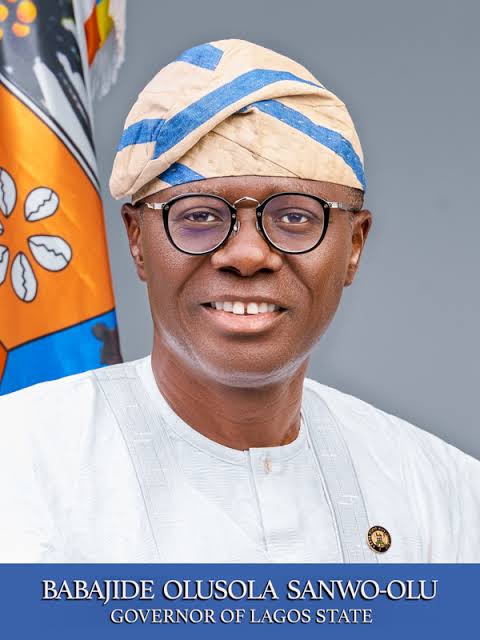If a state like Lagos is not proactive, it may one day discover that its tradition and culture have disappeared with the wind. Being a melting pot – the global village of the Giant of Africa – its culture stands the risk of getting neutralised as it spreads its aquatic carpet for all and sundry trooping in with their variegated dreams. Indeed, based on how different ethnic groups tend to dominate particular industries or geographical locations in the state, while they also assert their cultures, the fear of Lagos losing its cultural essence could be real.
But, in the spirit of onílùú kìí fẹ kó tú, a Yoruba proverb meaning the owners of a town never watch it go under, and t’ẹni n t’ẹni, tèkísà mi t’ààtàn (you hold onto what is yours the way a garbage dump protects its rags), the state government, alongside other stakeholders, are ensuring that Lagos not only retain its values, but also propagate such. The Babajide Sanwo-Olu administration has particularly proved responsible and responsive in this regard. This, for instance, is the spirit that gave birth to the John Randle Centre for Yoruba Culture and History, among other initiatives. The latest in the cultural regeneration scheme is the introduction of the Yoruba Week, which will celebrate the people’s arts and culture, language, philosophy and worldview, all of which have been widely acknowledged to be among the richest, most sophisticated and versatile globally.
The beautiful news kissed the air last week when the Sanwo-Olu government approved a proposal by the House of Assembly to the effect of an annual Yoruba Week. Details of the contents of the project have not been revealed but the date has been fixed, to demonstrate how determined both the executive and legislature are on the matter. The maiden edition will hold in September.
Yoruba Language-loving House
An excited Speaker of the House of Assembly, Rt. Hon. Mudasiru Obasa said the programme would hold the last week of every September. According to a statement by the Chief Press Secretary to the Speaker, Eromosele Ebhomele, the move is to preserve and promote the rich Yoruba cultural heritage. It added that the decision was conveyed to the Lagos State House of Assembly through a letter from the executive arm, following a resolution passed by the lawmakers on 19 September 2023, calling for the activation of Yoruba cultural heritage and the assignment of a special day as the Yoruba Day.
The letter, dated 8 April 2024, and signed by the Permanent Secretary of the Ministry of Tourism, Arts and Culture, Mrs. Oloruntoyin Atekoja, stated: “Sequel to the resolution of the House at its plenary of Tuesday, 19 September 2023, on the activation of Yoruba cultural heritage and a special day to be assigned as the Yoruba Day, I have the directive to officially convey Mr. Governor’s approval for the last week of September as the Yoruba Week”.
Obasa, who has never hidden his interest in Yoruba language especially, which manifested in the Houses’ earlier resolution to dedicate some days to conducting the business of the House in the mother tongue, commended Sanwo-Olu and his cabinet for the decision, describing it as a “good development”. According to him, Yoruba culture and heritage are very important, and there is a need for its preservation, adding that the House is ready to support the executive to ensure the success of the planned Yoruba Week.
From Ligali Mukaiba to Adekunle Gold
The event is, indeed, one to anticipate with fervour based on tangible and intangible resources the state exudes and its trademark capacity to stage grand celebrations – à la ‘Eko for Show’. Among all the IBILE political divisions, Badagry, Epe and Ikorodu are still relatively closer to nature and tradition. It will, thus, be interesting to see how the Yoruba Week will play out there. Yet, it could be a risky assumption to conclude that such are the biggest homes of Yoruba arts and culture in Lagos, bearing in mind how a city-centre zone like Lagos Island still keeps its cultural heritage symbolised by the Eyo Festival and the continued propagation of agidigbo music.
In spite of its cosmopolitan profile, Lagos, of course, has an onion-layered history, a rich artistic heritage as well as many amazing indigenous creative idols to flaunt. While the icons cut across different genres, a lot of Lagos-based or Lagos-bred culture greats stand to be counted and are worthy of showcasing and cultivating. Lagos has gifted to the country and the world in general notable musicians and dramatists/filmmakers. From S. Aka Omo Lawale/Ligali Mukaiba era to the present Tiwa Savage/Adekunle Gold generation, it has always boasted bright artistes – with Ayinde bakare, Bobby Benson, Tunde King, Wizkid, Vector etc. also coming to mind. And, apart from the fact that the likes of Fela, Victor Olaiya, Adeolu Akinsanya, King Sunny Ade, Wasiu Ayinde and Salawa Abeni had their stardom made in Lagos, a popular area like Mushin is synonymous with the evolution of great Yoruba song-stars that include Ayinla Omowura, Sikiru Ayinde Barrister, Kollington Ayinla and Wasiu Alabi Pasuma. The impacts and exploits of all of the icons are likely to echo one way or the other during the Yoruba Week.
Well, good enough, the Centre of Excellence is also the first home of Nollywood, which has many of its dominant players either born or residing on around the Lagoon, metaphorically speaking. The Yoruba Week will, as a result, have a robust presence of filmmakers and other Thespians to feed on. From the older Jide Kosokos to the Bimbo Ademoyes, there is no shortage of Yoruba stars and other experts to project, the way you have in other genres, businesses and professions. All of these, together with Yoruba fashion, arts and crafts, foods and more, are expected to be celebrated during the Week, making the maiden event something to impatiently anticipate.
